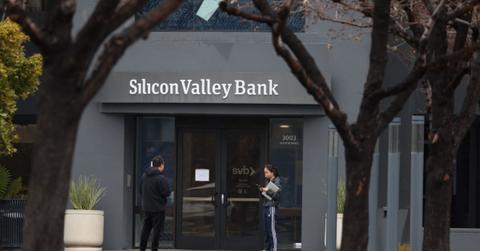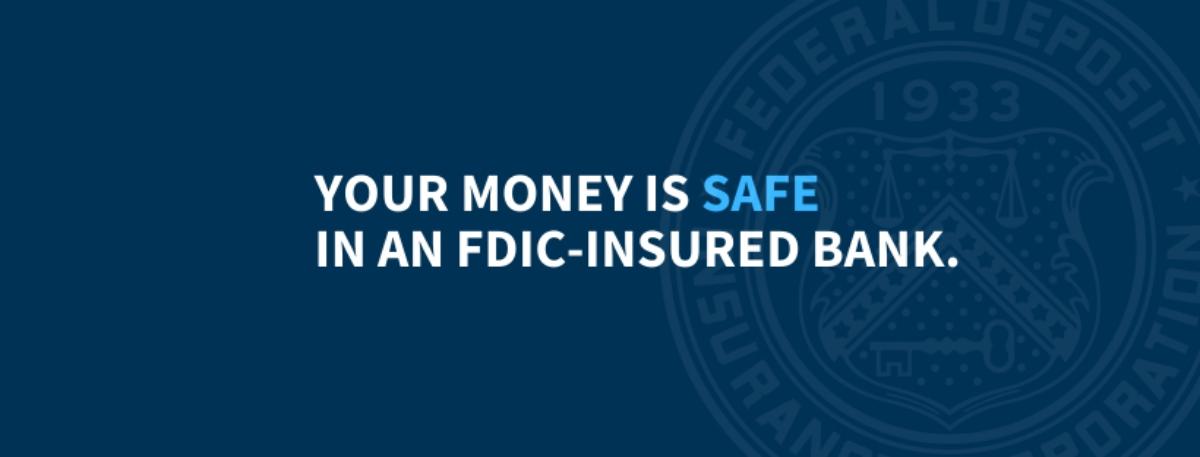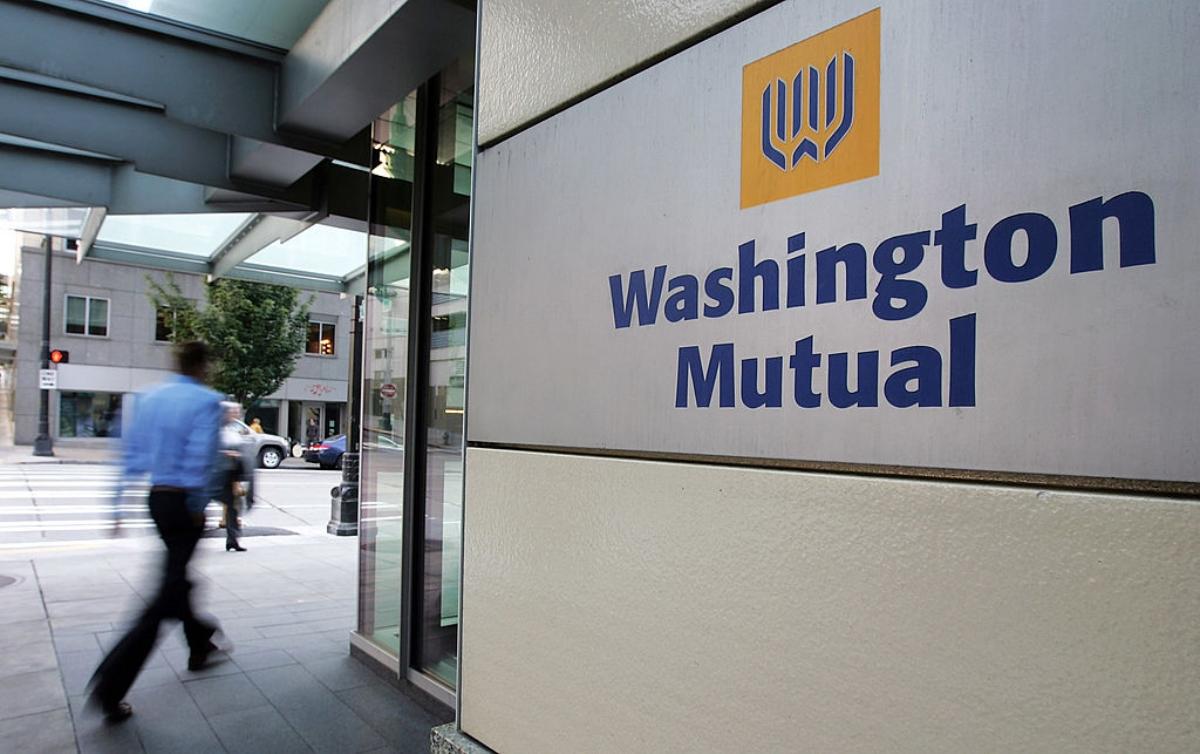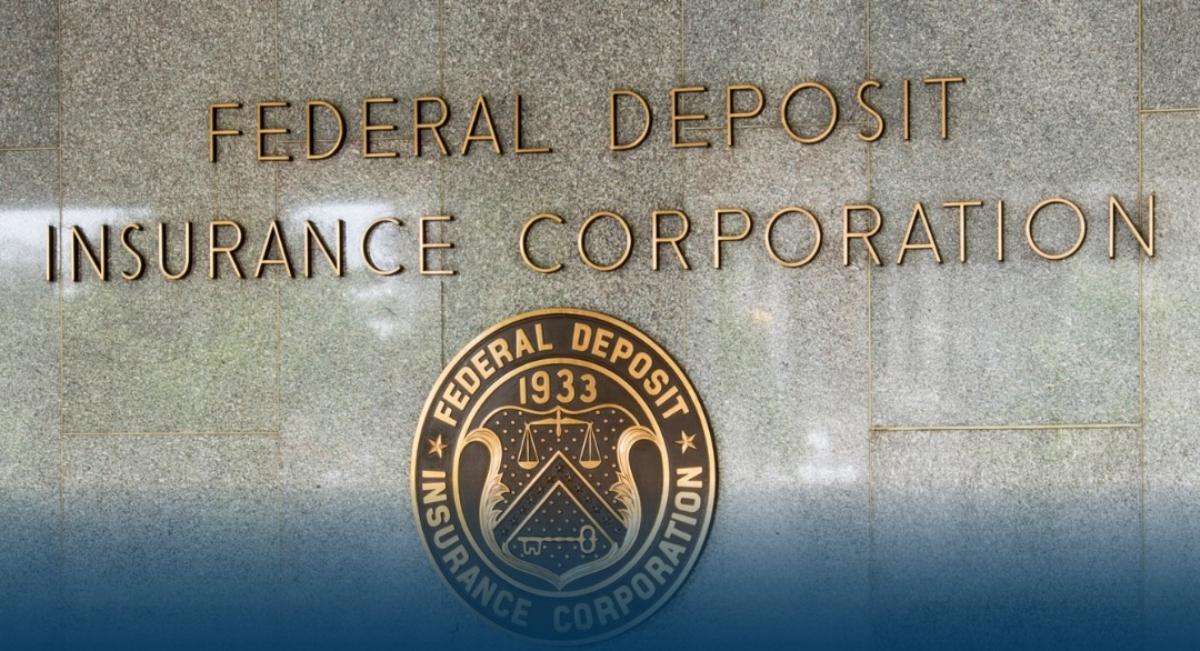Silicon Valley Bank and Signature Bank Close — What Happens to Deposits?
Silicon Valley Bank and Signature Bank have closed and been taken over by the FDIC. What happens to the money held at those banks after closure?
March 13 2023, Published 11:19 a.m. ET

Silicon Valley Bank was closed by regulators on March 10, 2023.
The financial and banking industry is reeling after two major U.S. banks closed last week. Silicon Valley Bank (SVB) had been the 16th largest U.S. bank, but California regulators shut down the bank on March 10, 2023. Two days later, Signature Bank met the same fate. Why did Silicon Valley Bank and Signature Bank close, and what will happen to money held in those institutions?
Within a three-day period, the second and third-largest bank failures in U.S. banking history took place. Memories of the downfall of Washington Mutual in 2008 have surfaced as two major banks experienced fears of a bank run and investors rushed to try to withdraw or move their funds.

The FDIC exists largely to protect Americans from losing their deposited funds.
Why did Silicon Valley Bank shut down?
Silicon Valley Bank, founded in 1983, was a major investor in the tech industry. According to CBS News, the bank's stock dropped by 60 percent last Thursday, March 9, followed by another 70 percent plunge on March 10. The California Department of Financial Protection and Innovation closed SVB, which put the Federal Deposit Insurance Corporation (FDIC) in charge.
A number of depositors withdrew their funds from SVB last week as anxiety and fears of an old-fashioned bank run increased. Technology workers and venture capital-backed companies made up a large percentage of SVB's depositors. On March 10, California regulators cited "inadequate liquidity and insolvency" as the reason for the closure.

What happened to Signature Bank?
Signature Bank's story closely echoes that of SVB. The commercial bank with private client offices and nine national business segments had about 25 percent of its deposits in cryptocurrency. Just two days after the shocking closure of SVB, New York state regulators closed Signature Bank and the FDIC took over its deposits.
What is the largest bank failure in U.S. history?
As news of SVB's failure rocked markets and investors, comparisons to the largest-ever bank failure arose. In 2008, Washington Mutual, or WaMu, was the largest savings and loan institution with $309 billion in assets. The federal government seized control of WaMu and sold it to JPMorgan Chase.
Silicon Valley Bank's downfall makes it the second-largest bank failure after the 2008 demise of WaMu. SVB's $209 billion in assets were taken over by the FDIC after a sudden filing from the company that it had sold $21 billion in assets and was offloading stock. U.S. Treasury Secretary Janet Yellen called SVB's collapse "a matter of concern."

Washington Mutual's is still the biggest U.S. bank collapse in history.
What does it mean to be FDIC insured?
The FDIC was created to build stability and consumer confidence in the U.S. financial system. One of the agency's primary objectives is to insure deposits; that's why you'll see "FDIC insured" in the terms of many financial products like savings and investment accounts.
In general, having accounts that are FDIC insured means that even in the case of a bank failure, your money is protected up to a certain amount. The standard is up to $250,000 per FDIC insured account, per depositor, per insured bank. Depositors should be able to access their money relatively quickly after the FDIC takes over a financial institution.

The FDIC insures bank accounts such as savings, checking, and CDs at member institutions.
Is Silicon Valley Bank FDIC insured? What about Signature Bank?
Fortunately for depositors at both SVB and Signature Bank, the FDIC is stepping in to ensure no insured depositors lose their money. Along with the Federal Reserve and the U.S. Treasury, the FDIC made a public statement on March 12 and said, "Today we are taking decisive actions to protect the U.S. economy by strengthening public confidence in our banking system."
Starting Monday, March 13, the agencies noted that all SVB and Signature Bank depositors will regain access to their funds. However, shareholders and unsecured debt holders of both banks won't be protected by the FDIC's actions. No losses from either bank failure "will be borne by the taxpayer," the agencies said.
The FDIC established a "bridge" bank for Signature Bank customers, who will be able to access their funds through the new Signature Bridge Bank, N.A. Greg D. Carmichael, former CEO and president of Fifth Third Bancorp, was named the CEO of the bridge bank.
After a bank closes, the FDIC moves funds into a different financial institution, which is where customers then can access their accounts. Alternately, they may send customers a check for the amount, CNET notes. Funds that are not protected by the FDIC include annuities, bonds, cryptocurrency, mutual funds, life insurance policies, and safe deposit boxes.
